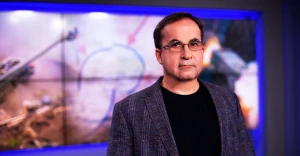
UN and G20 with Putin's accent
At the G20 summit, the Global South countries beat the West in the "grain round": this is not a lost war, but an unwon battle of global democracies. This should make the EU and the US collect their thoughts
The G20 resolution was written on the "peacekeeping initiatives" of President Erdogan and UN Secretary-General Antonio Guterres. Both were actively communicating with the Kremlin.
United Nations Secretary-General Antonio Guterres wore a blue peacekeeper's helmet with a red star, hammer and sickle. Guterres secretly corresponded with the "dark horse" Lavrov and eventually offered to lift a number of sanctions against Russia in exchange for the "grain deal" resumption.
-
To reconnect one of the state-owned Russian banks to the SWIFT global payment network.
-
Insure Russian ships against Ukrainian attacks in the Azov and Black Seas.
-
Return frozen assets to Russians.
-
Allow Russian ships to enter EU ports again.
There was no proposal to nominate Putin for the Nobel Peace Prize, but that is probably in the plans.
“At the time, it seemed that by flirting with the Kremlin, Guterres cast a shadow over the entire UN: according to its charter, the secretariat serves the institutions of the Organization and implements the policies developed by them. Neither the General Assembly nor the Security Council raised the issue of lifting sanctions against Russia, which means that Guterres demonstrated voluntarism.”
The reason for this behavior is obvious: the Portuguese Guterres is a socialist by views and seeks support from the "red" leaders of the UN Security Council members, in particular China and Russia, as well as their "friend" Brazil. After all, the civilized world blames Guterres for his inaction, especially in the "Ukrainian issue." So the Secretary-General took his socialist initiative.
After his meeting with Putin, Turkish President Erdogan also sang the same tune as Guterres.
Erdogan called on the G20 to make "some concessions" to Muscovy, including connecting Russian banks to SWIFT and allowing international companies to insure Russian grain and fertilizer exports.
“The Turkish leader flirts with Russia due to his merchant nature: on the one hand, his country will earn billions of dollars from grain, and on the other hand, Turkey's economy is in a terrible state and needs new markets in the Third World (the Global South), so Erdogan, with his typical Eastern cunning, appeases them.”
The final resolution of the G20 indicates that the Global South has beaten the West: Third World countries have coordinated their demands and forced wealthy states to compromise.
"We appreciate the efforts of Turkey and the UN-brokered Istanbul agreements, consisting of the Memorandum of Understanding between the Russian Federation and the UN Secretariat on the promotion of Russian food and fertilizers to world markets and the Initiative for the safe transportation of grain and fertilizers from Ukrainian ports (Black Sea Initiative), and call for their full, timely and effective implementation," the declaration reads.
At the same time, the Western world professes the logic of launching a "grain corridor" from Ukraine without any agreement with the Russians. British Air Force warplanes have begun patrolling the Black Sea to protect ships carrying Ukrainian grain from the air. The same Britain proposes to block Russian ships in the Black Sea, and Romania and Bulgaria are negotiating with Ukraine to create an alternative sea "grain" route. In addition, Romania is strengthening its air defense in this area.
What is the result? The G20 leaders' declaration is advisory in nature, and Ukraine criticized it, including for the fact that Russia was never named as an aggressor. Therefore, the practical significance of this document is only one: Western politicians must analyze when and where they lost the initiative and how to change the balance of power in the world's chess game.
About the author. Orest Sokhar, journalist, editor-in-chief of Obozrevatel online publication
The editors do not always share the opinions expressed by the authors of the blogs.
- News











































